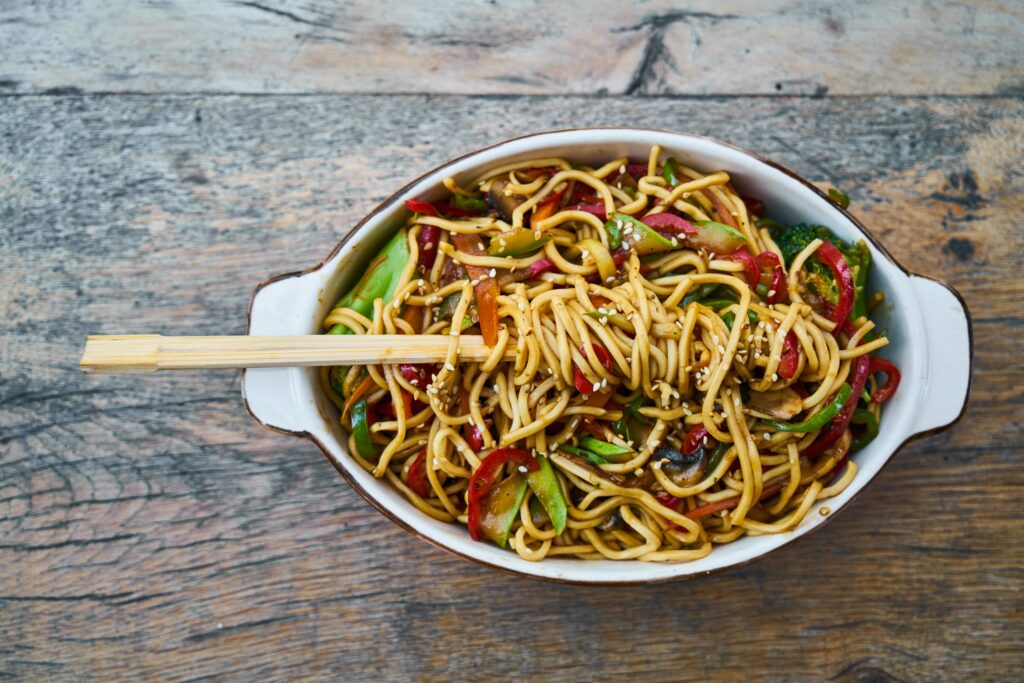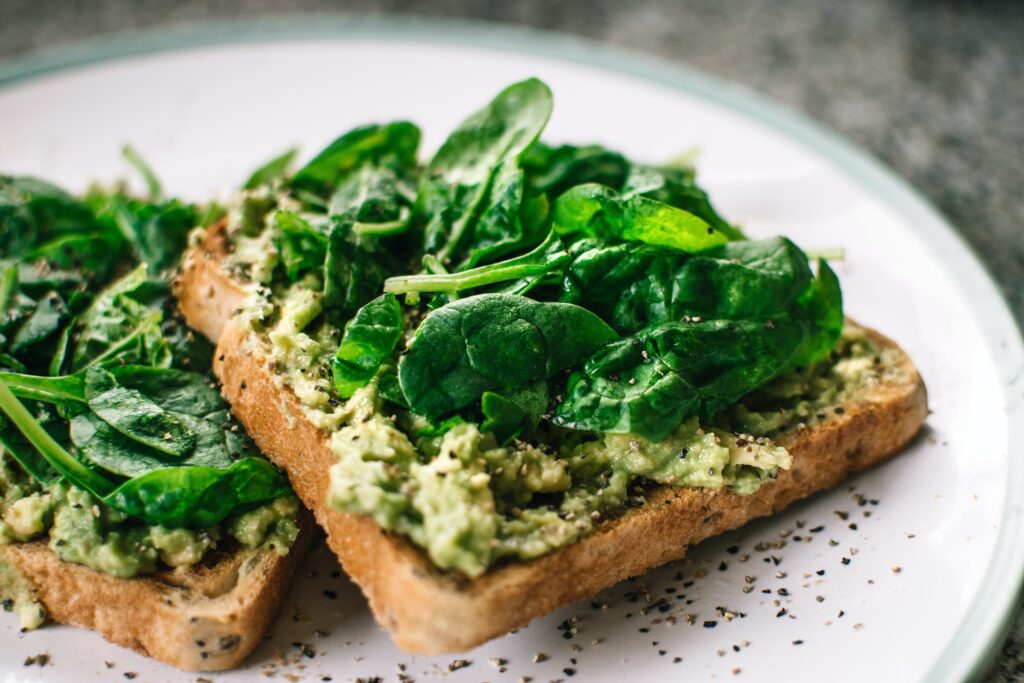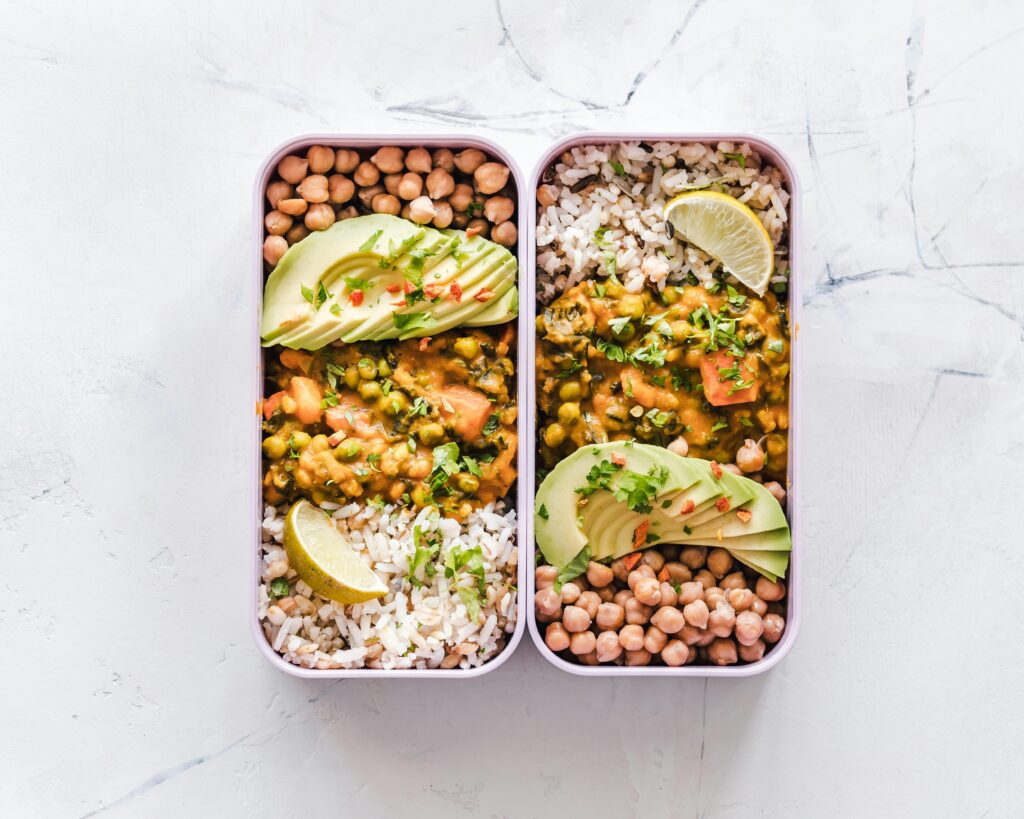Introduction
What is the main difference between vegans and vegetarians? People make dietary decisions in our modern world for a variety of reasons. The two most common dietary approaches are vegetarianism and veganism. Let’s examine these concepts and determine their primary distinctions.
People who practice veganism abstain from eating any kind of animal product. That means no dairy, eggs, meat, or anything else derived from animals. Saying no to anything that includes animals is a firm decision.
People become vegans out of a profound concern for the environment and animals as well as for their personal health. Vegans advocate for kind treatment of animals and the avoidance of anything that might be harmful to them. They understand the effect that certain dietary decisions might have on the environment as well.
Contrarily, vegetarianism entails abstaining from meat. However, vegetarians may still consume some animal products in their diet, such as dairy (milk, cheese, etc.) and eggs, in contrast to vegans. They may not always object to everything that comes from animals, but they do draw a line at flesh.
There are several reasons why people choose to live vegetarian lifestyles. Some people follow a vegetarian diet because it can be beneficial to their health. Some make this choice because they care about how animals are treated ethically. Additionally, some people practice vegetarianism due to cultural or religious convictions.
Globally, people are growing more conscious of the impact their dietary decisions have on the environment. Particularly, the production of meat has been connected to environmental problems including greenhouse gas emissions and deforestation. Many are starting to think of plant-based diets as a more environmentally responsible choice as a result of this awareness.
Diets based primarily on plants are becoming more and more popular due to their many health advantages. Maintaining a better diet can be facilitated by consuming more fruits, vegetables, and grains. This increased interest encompasses not only personal wellness but also environmentally conscious decision-making.
Veganism and vegetarianism are growing in popularity as more people become aware of their influence on the environment and animals. We can better grasp the range of reasons people make these dietary decisions if we know the motives underlying them.
Core Principles
Veganism
To put it simply, being vegan involves more than just avoiding specific meals. It’s an ethical way of living that values protecting animals and choosing actions that don’t hurt them. Vegans strive to create a world where animals are treated with love and respect; they are like superheroes for animals.

Strict avoidance of all animal products:
Saying no to anything derived from animals is the simple tenet of veganism. That means no dairy products, no eggs, no meat, and not even honey. Vegans opt to fully cut these foods out of their diet. It’s similar to making the decision to abstain from using or consuming anything that is animal-derived.
Stress on leading a cruelty-free life:
Kindness is a major tenet of veganism. Animals should not suffer in the lives of vegans. They think that people ought to treat animals with kindness and consideration. Thus, vegans are attempting to ensure that they are not a part of anything that can harm our animal friends by abstaining from using or eating anything that comes from animals.
Ethical considerations and animal rights activism:
Vegans actively seek to ensure that animals are treated humanely in addition to simply abstaining from animal products. They may become involved with organizations or campaigns that work to stop cruel treatment of animals. It’s similar to speaking up for people who are unable to speak for themselves. Being vegan is more than just following a diet; it’s a method of speaking out against the mistreatment of animals in our society.
Vegetarianism
To put it briefly, being a vegetarian entails rejecting meat but accepting some animal products. Vegetarians come in several forms, each with their own set of guidelines. Why do people convert to vegetarianism, then? There are many valid reasons to do it, including those related to health, religion, protecting the environment, or simply wishing to be kind to animals.
Exclusion of meat but allowance of certain animal products like dairy and eggs:
A vegetarian is someone who says, “I won’t eat meat, but I’m okay with some things that come from animals, like milk and eggs.” Therefore, vegetarians still incorporate dairy products (such cheese and yogurt) and eggs in their meals, even though they avoid burgers and chicken. It’s similar to striking a balance between consuming some animal products and avoiding meat.

Different types of vegetarians:
Now, not every vegetarian adheres to the same guidelines. There are people who are lacto-vegetarians; they solely consume plant-based and dairy products. Others consume eggs in addition to plant-based diets; they are known as ovo-vegetarians. Then there are vegetarians who only eat dairy and eggs, known as lacto-ovo vegetarians. It’s similar to having many degrees of vegetarianism, from which individuals can select the kind that best suits their needs.
Varied motivations – health, religious, environmental, and ethical:
Why do individuals convert to vegetarianism? Indeed, there are various causes. For those who believe that eating a diet high in vegetables and low in meat is healthier, this is the case. For others, it can have to do with adhering to religious doctrine that supports a vegetarian way of life. Some people have strong environmental concerns and adopt vegetarianism as a way to lessen their influence on the environment. There are also individuals who do it out of ethical conviction—they favor no actions that injure animals and think that animals should be treated with kindness.
Dietary Differences: Vegan Diet
Eating a vegan diet is like indulging in a vibrant, plant-powered feast. However, it’s critical for vegans to monitor specific nutrients that may require a bit more care. The good news is that there are lots of delicious substitutes out today, so going vegan is not just healthful but also interesting and delectable!

Emphasis on plant-based foods:
A vegan diet is centered around consuming an abundance of fruits, vegetables, grains, and nuts on most of your plate. Plant-based foods are a favorite food group among vegans. It’s like having a rainbow of hues from nature and becoming friends with the green, leafy superheroes on your plate.
Potential challenges in obtaining certain nutrients:
Although a vegan diet is incredibly beneficial, certain nutrients may require more care. Certain vitamins, including as B12, iron, and omega-3 fatty acids, are considered unique nutrients that may be more difficult to obtain from plant-based diets alone. It’s critical for vegans to adopt wise dietary choices and supplementation to ensure adequate intake of these vital minerals.
Growing availability of vegan alternatives:
Being vegan these days is great since there are a ton of delicious substitutes for any things you could miss. Almond milk is available in place of cow’s milk. There are equally delicious plant-based burgers available as alternatives to meat-based ones. The culinary industry is coming up with inventive ways to provide vegans with tasty options that are also kind to the environment and animals.
Dietary Differences: Vegetarian Diet
A vegetarian diet can be thought of as a cooperative arrangement between plants and certain animal products. Dairy and eggs offer extra flavors and nutrients to the dish; it’s an option-based diet. Being a vegetarian means to enjoy a colorful and varied meal with the added benefits of dairy and eggs. It’s not just about what you don’t eat.
Inclusion of dairy and/or eggs for some vegetarians:
Imagine a vegetarian diet that is devoid of meat but still favorable toward dairy items like milk, cheese, and eggs. Whereas vegans omit nothing from animals, some vegetarians gladly incorporate these delicious dairy and egg dishes into their meals. It’s similar to getting the goodness from our animal companions without really consuming them.

Potential for a more varied nutrient intake compared to vegan diets:
A vegetarian diet is a veritable gold mine of nutrients. Vegetarians now have additional options to obtain vital nutrients like calcium from dairy and protein from eggs since both dairy and eggs are on the menu. It’s similar to having a vibrant food palette at your disposal, which makes it simpler to illustrate excellent health with a range of nutrients.
Flexibility in meal options:
One superpower of being vegetarian is flexibility! Vegetarians enjoy a lot of delicious dinner options, such as creamy pasta, omelets with veggies, and cheese pizza. They can take advantage of the benefits of both plant-based diets and dairy and eggs, which provide extra flavor. It’s similar to having a passport that opens up a world of tasty and varied meals.
Ethical Considerations for Veganism
Being vegan is a way of protecting animals and saying “no” to anything that could harm them, not just regarding food. As the protectors of the animal realm, vegans stand up to practices like animal testing and factory farming in order to ensure the welfare and safety of our animal companions.
Opposition to all forms of animal exploitation:
Vegans are similar to superheroes for animals. Imagine that! They firmly refuse anything that could harm or take advantage of animals because they have a great compassion for them. Vegans think that animals should have humane and respectful treatment. Therefore, it goes beyond simply focusing on what they consume to include opposing anything that takes advantage of or harms our feathered and furry friends.
Activism against practices like factory farming and animal testing:
Vegans are like superheroes in action, not just placid spectators. They speak out against practices such as factory farming, which may result in poor treatment of animals. It resembles standing up for people who are unable to advocate for themselves. Additionally, they oppose the practice of using animals in experiments, or “animal testing.” Vegans actively want to create a world in which animals are treated with compassion and affection because they firmly believe that animals should not suffer.

Ethical Considerations for Vegetarianism
Giving up meat is equivalent to becoming a vegetarian and speaking out against animal abuse. There is a group of people who support making decisions that will benefit animals more. Regarding other animal products, however, that really is up to each individual and what they believe to be the best option. Being a vegetarian is similar to going on a personal journey where one makes moral decisions that suit their own values and views.
Focus on reducing harm by eliminating meat consumption:
Imagine a group of people who are committed to improving the lives of animals worldwide. That is the main goal of vegetarians! When they refuse to consume meat, they make a significant move. It’s akin to making a vow to refrain from endangering animals for our own consumption. Thus, the goal of vegetarianism is to minimize harm through the decision to abstain from meat.

Varied stances on other animal products based on personal beliefs:
While vegetarians abstain from meat, they may hold differing views toward other animal products, such as dairy and eggs. Some vegetarians gladly incorporate them into their meals, believing that as long as there is no animal suffering involved, it is acceptable. Some people may decide, according to their personal convictions, to stay away from specific animal products. Vegetarianism is therefore about making decisions that feel right for each individual; it is not a one-size-fits-all philosophy.
Health Considerations for Veganism
Being vegan is akin to being a health superhero. It’s crucial to do it correctly, but there are some really great rewards. The key is a well-balanced diet rich in vibrant plant foods. Furthermore, vegans watch their nutrition to make sure they’re constantly in superhero shape—just like superheroes do with their powers!
Potential health benefits and risks:
Aiming to treat their bodies like superheroes, vegans do just that! A thoughtfully designed vegan diet has many amazing health advantages. It may help control your weight, reduce your chance of heart disease, and even improve your blood sugar levels. But as with any superhero adventure, there can be dangers if things aren’t done correctly. Certain minerals, such as iron, B12, and omega-3 fatty acids, may require additional consideration. So, even though veganism has many health benefits, it’s important for vegans to make sure their bodies are getting all the nutrients they require.
Importance of a well-balanced vegan diet:
A plate of rainbow colors on a balanced diet is what it means to be a healthy vegan. It’s important to incorporate a variety of plant foods into your meals in addition to abstaining from animal items. A range of foods, from fruits and vegetables to grains and nuts, aids in obtaining all the necessary nutrients. It’s similar to formulating a superpower for a robust and well-maintained physique.
Monitoring nutrient intake:
As superheroes are always aware of their abilities, vegans must also be aware of their food intake. Vegans may need to take particular care because certain essential elements, such as iron and B12, may be difficult to obtain from plant-based diets alone. This might be making dietary choices that are fortified or possibly taking supplements to ensure that their bodies are getting all the nutrients required to become superheroes.
Health Considerations for Vegetarianism
Adopting a vegetarian diet is similar to starting a healthier lifestyle. Vegetarians open the door to potential health benefits by consuming less meat. It’s important to embrace a range of plant-based meals in order to establish a balanced diet fit for a superhero, rather than focusing just on what they shouldn’t eat.

Health benefits associated with reduced meat consumption:
Imagine becoming friends with plants and giving your body a boost—that’s what vegetarians do! Being a vegetarian has some possible health benefits, which is cool. Vegetarians who refuse meat may experience improved blood sugar levels, control their weight, and a decreased risk of heart disease. Plant-based diets are like having a superhero companion that helps your body function better.
Importance of diverse food choices for a balanced diet:
Maintaining a healthy vegetarian diet is similar to having a vibrant culinary pallet. Vegetarians get to enjoy a variety of plant-based cuisine rather than just one kind. The selections are infinite, ranging from fruits and vegetables to grains, legumes, and nuts. Their bodies will receive all the many nutrients they require because of this diversity. It’s similar to assembling a superhero squad with a variety of abilities to maintain the body healthy and robust.
Common Misconceptions: Veganism
There are misconceptions about becoming a vegan, particularly when it comes to protein. Actually, there are lots of plant-based options available for that. In terms of other nutrients, the vegan superhero may easily make up for the shortfalls by planning ahead and selecting the appropriate foods or supplements, ensuring their continued strength and well-being.
Stereotypes and misconceptions about protein intake:
When it comes to vegans, some people seem to forget that protein is the body’s basic building block. It’s a popular misconception that because vegans don’t consume meat, they may have trouble getting adequate protein. In actuality, though, there are many plant-based protein sources available, including nuts, tofu, lentils, and beans. It’s similar to having a group of superhero-like plants on call to keep you robust and well.

Clarification of nutritional concerns:
There are instances when people are concerned that a vegan diet may be deficient in vital nutrients. It feels like a part of the superhero squad is missing. However, vegans may ensure they obtain all the nutrients they need with a little advance planning. Some may even take supplements. They may select foods enriched with minerals like omega-3 or B12. It’s similar to completing the puzzle pieces to finish the superhero picture and guarantee a diet that is well-balanced.
Common Misconceptions: Vegetarianism
There are conflicting theories on the potential health effects of vegetarianism. However, the truth is that vegetarians can lead a wholesome and nourishing lifestyle by making wise food choices and adhering to a balanced diet. It’s about busting the stereotypes and recognizing that eating a plant-based diet may actually be a very healthy and nourishing approach to staying strong.
Misunderstandings about the health implications of excluding meat:
Similar to a game of telephone, knowledge regarding vegetarianism might occasionally be a little hazy. There are others who think that vegetarians may experience health issues as a result of not eating meat. In actuality, though, a well-thought-out vegetarian diet can be really healthful. Vegetarians can ensure that they are getting all the nutrients they require by consuming a wide range of plant-based foods. It’s similar to keeping them healthy and strong with a secret supply of superhero meals.
Addressing common misconceptions related to vegetarian diets:
There are misconceptions regarding vegetarian diets that are prevalent, such as the idea that one will not get enough protein or certain nutrients. But they are merely false beliefs. There are several protein sources available to vegetarians, including dairy, lentils, and beans. Additionally, they can easily achieve their nutritional needs with a balanced diet that consists of a variety of fruits, vegetables, grains, and nuts. It’s like removing the clouds to see the reality: eating vegetarianism may be delicious and healthful.
Conclusion
Let’s now conclude our exploration of the vegan and vegetarian worlds. Recall that vegetarians abstain from meat but may accept dairy and eggs, whereas vegans are superheroes who refuse all animal products. It’s similar to two distinct chapters in the mindful eating book. Be mindful to examine food wisely as you learn about different lifestyles. Make well-informed decisions regardless of your inclination towards veganism or vegetarianism. Find out what foods will provide your body energy and happiness. It’s like steering your own food ship through scrumptious and nourishing waters as the captain.
Like two superheroes collaborating, vegans and vegetarians have the same objective! Their goal is to improve the world by lessening the suffering of animals and practicing environmental stewardship. The common objective is to create a world where animals are treated with care and our planet remains happy and healthy, whether that means saying “no” to meat alone or to all animal products.
It’s important to make decisions that feel good for you, regardless of whether you decide to follow a vegan or vegetarian diet. It’s about being a superhero in your own unique way for the environment and animals. Now go forth, investigate, and relish the journey of choosing delicious and thoughtful foods for a healthier self and a happy Earth! Hence the answer to the question What is the main difference between vegans and vegetarians?

